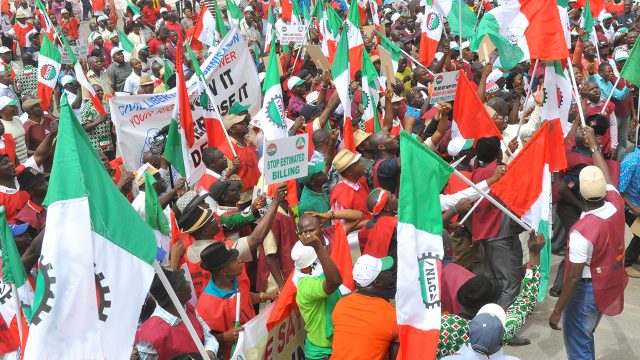The Nigeria Labour Congress (NLC) and the Trade Union Congress of Nigeria (TUC) have jointly announced their decision to commence an indefinite strike starting on Tuesday, October 3rd. This move comes as a response to the failure of the Federal Government to address the socioeconomic hardships and suffering caused by the removal of the subsidy on Premium Motor Spirit (PMS), commonly known as petrol.
They made the announcement during a joint press briefing held today in Abuja, the nation’s capital. It marks a united front after differences had initially led only the NLC to embark on a two-day warning strike without TUC’s participation.
The labour unions have also called on their state chapters to mobilize for protests across the country, amplifying their demands for improved living conditions and economic stability.
The leaders of both labour centres conducted a virtual meeting to resolve their differences and outlined their intentions to escalate their protests.
In response to the strike announcement, the Minister of Labour and Employment, Simon Lalong, appealed to the NLC leadership to reconsider their decision.
He assured them that the Federal Government remains committed to addressing the concerns raised by the unions. Lalong noted that one of the major demands of the NLC, the release of the leadership of the Nigeria Union of Road Transport workers, has already been met.
A statement released by the Ministry of Labour and Employment’s spokesperson, Olajide Oshundu, urged the workers’ unions to grant the government more time to address the remaining issues and collaborate in finding solutions.
Earlier in September, on the 5th and 6th, the NLC had initiated a two-day warning strike to pressure the government into addressing the widespread suffering of Nigerians, particularly workers.
The decision to launch an indefinite strike reflects the unions’ determination to advocate for improved living conditions and address the challenges brought about by the removal of the fuel subsidy, which has had a significant impact on the country’s populace.




















